By
Team DIGO | 10/08/2012 | in
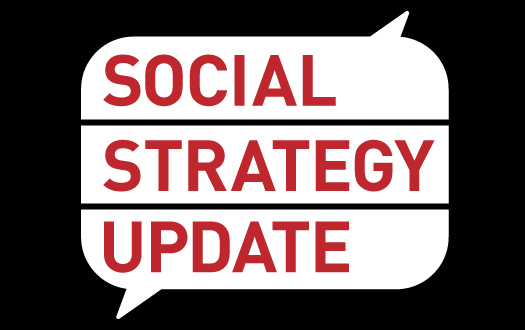
Here is your weekly social digest!
1. Facebook Reached 1 Billion Users.
2. Facebook Launches Pinterest-esque “Want-able” Product Photos.
3. Twitter Partners with Nielsen to Measure Brand Impact.
4. LinkedIn Redesigned Brand Pages Available to All.
5. Don’t Fail Miserably on Instagram.
6. New Facebook Campaign Launched to Target 13 Countries.
7. Viral Videos Granny Edition:
-Grandma dancing like Usher.
-90 Year old Grandma Dances to Skrillex.
–Green Screen Grandmas.
By
Team DIGO | 10/02/2012 | in
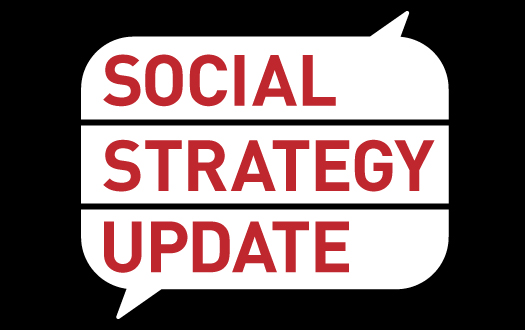
Here’s your weekly dose of social–enjoy!
1. Facebook gifts are back, but this time they are not virtual.
2. In response to comments on her recent weight gain, Lady Gaga starts a body revolution with her little monsters.
3. Facebook introduces ads re-targeting.
4. For the first time ever, YouTube will be live streaming the Presidential Debates.
5. Foursquare partners with OpenTable to allow restaurant reservations.
6. Viral Videos:
-YouTube’s 10 Most Shared Ads of September
-Big cat skinny box
-Ellen sends her staff writer to Costco, but she can only speak to shoppers in song lyrics (the last guy is the best!)
By
Team DIGO | 09/26/2012 | in
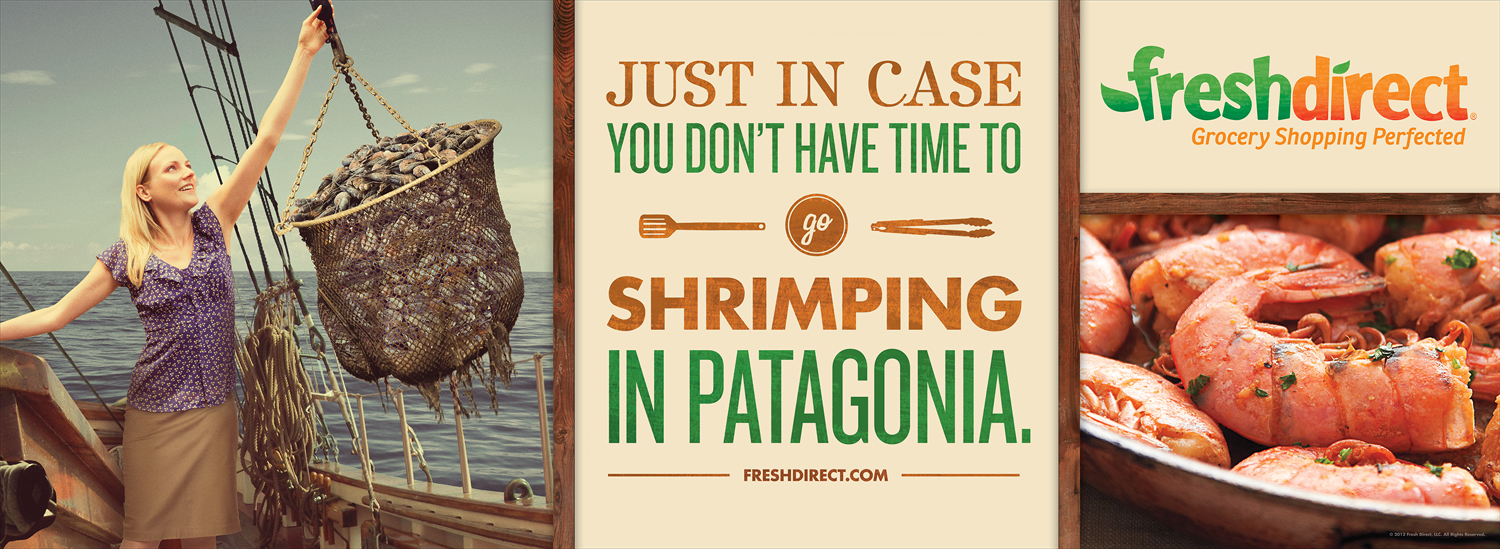
By STUART ELLIOTT
FreshDirect, the online home-delivery grocer, is preparing a new advertising approach as it seeks to, er, um, freshen its brand image.
A campaign scheduled to begin this week is to introduce a theme, “Grocery shopping perfected,” that is intended as a more engaging way to express the company’s philosophy than current lines like “A new standard for grocery shopping.”
The new theme is part of a revamped pitch aimed at busy consumers — primarily working mothers — who care enough about the quality and provenance of the food they buy to pay FreshDirect’s prices.
The campaign is the first work from the DiMassimo Goldstein ad agency in New York, which won the FreshDirect creative account in a review. The company previously worked with another New York agency, Gotham, part of the Interpublic Group of Companies.
The campaign includes print advertisements, ads on the side of the seemingly ubiquitous FreshDirect trucks, direct mail, outdoor signs, online banner ads and a presence at events like food festivals. Read the full article here and see more ads from the campaign below:


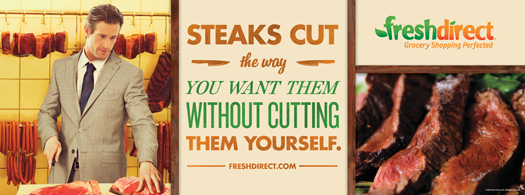
By
Team DIGO | 09/26/2012 | in

1. 50% of consumers say that they value a brand’s Facebook page more than its website. Check out the infographic.
2. At the Emmys Sunday night, Jimmy Kimmel orchestrated a prank where he asked viewers to tweet that Tracy Morgan had fainted at the show. The story generated over 25,000 tweets.
3. Annoying Things Brands Do on Twitter.
4. Author is using a Google Doc to write and edit her book. Users can watch in real-time.
5. Trending Viral Videos:
-Billy Joe from Green Day goes nuts when his set is cut short (warning LOTS of f-bombs!)
-Twilight Bad Lip Reading
–Squirrel Rampage
By
Team DIGO | 09/19/2012 | in
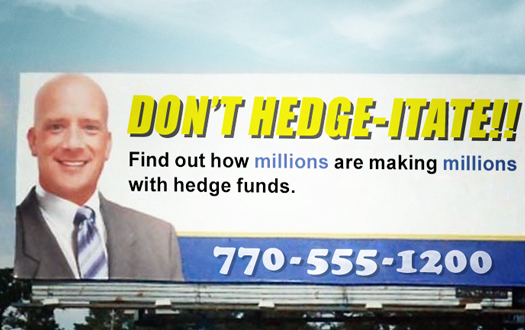
With the stage now set to reduce the restrictions on how privately traded securities can be marketed, there’s a very real concern that unsophisticated investors can be mislead by advertising for risky or even fraudulent investments.
Concerned opponents of the change conjure up images of billboards, TV ads and telemarketing calls touting high-risk investment opportunities to the unsuspecting masses. Yes, dishonest and unethical marketing happens, and sometimes it even works. Neither is unique to financial services.
Rather, let’s talk about good marketing. Good marketing is an essential component to building strong brands, and strong brands – brands that have real meaning to the public – are built on values and high-quality products and services. When brands are allowed to compete in the open, it becomes clear which ones are the good ones.
For years, hedge funds have been shrouded in secrecy. This was by design, as they had a finite but very willing and deep-pocketed constituency. Now that funds are looking to expand their reach, they have some work to do. If hedge funds are going to come out from behind the curtain, marketing must give their prospects a clear and distinctive reason to care. They must show how their expertise differentiates them from more familiar choices, as well as from one another. Whether it’s with incremental change like building out their website or major change like a full branding campaign, knowledge sharing should be at the center of establishing credibility.
Hedge funds are, at their core, knowledge organizations, with deep expertise in niche areas. They can begin to expand their market by sharing that expertise to educate an extremely targeted audience. They can model responsible and effective marketing by developing and distributing content of utility and credibility, by building trust and relevance with customers and prospects through sharing what they know and even extending their knowledge networks.
When the restrictions on marketing come down, hedge funds can play a central role in building new customer relationships, in shaping how their industry is viewed, and in highlighting their distinctive expertise. And that is the best defense against misleading marketing.
By
Team DIGO | 09/18/2012 | in
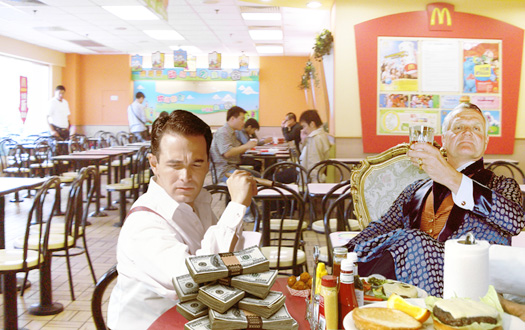
Donald Lawson, who claimed his Powerball prize last month in Michigan, doesn’t think so. At $337 Million, it’s the 3rd largest Powerball jackpot ever.
“Yeah, I’m a millionaire now, but I’ll still go to McDonald’s. I don’t like filet mignon or lobster. A simple life. That’s what I want to continue to do.” Lawson stated last week, when asked how his life was going to change.
What does this tell us about brand loyalty? Quite a bit actually. When a brand is so integrated in everyday life it’s quite difficult to give up, no matter how our circumstances change.
As advertisers, this kind of emotional connection is what we should be striving for with all of our clients. To create an unbreakable bond between brand and consumer, so no matter what life brings, it’s a friend that will be there every step of the way.
By
Team DIGO | 09/13/2012 | in
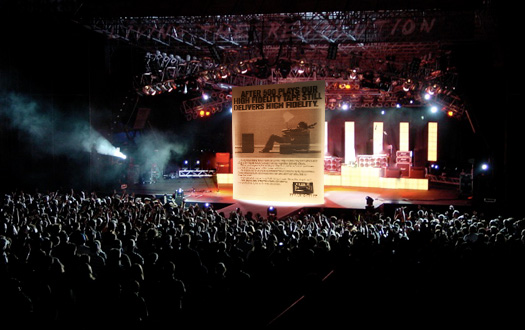
More than a few years ago, an advertising colleague told me a great Bruce Springsteen quote I often think about. I can’t remember who told me the quote and I can’t actually remember what the quote was, but I can assure you it was great. He said something to the effect of this: when you go on stage, you have to think like you’re the biggest rock star in the world. At the same time, you have to remember you’re not saving lives out there; it’s just music.
For me, this means you should pour your heart into every ad you make—but remember, in the end, you’re just making ads. You have to believe you’re doing the most important thing in the world while simultaneously remembering at the end of the day, this is advertising, not mortal combat. You need passion and drive, but you can’t fall apart every time an idea you love gets killed. You have to pull yourself together and come up with a new idea to fall in love with—and life goes on.
To end, I’ll leave you with a few more great lessons from the Boss that I think translate well for advertising (and these are real quotes!):
“I tend to be a subscriber to the idea that you have everything you need by the time you’re 12 years old to do interesting writing for most of the rest of your life – certainly by the time you’re 18.”
“You can go from doing something quite silly to something dead serious in the blink of an eye, and if you’re making those connections with your audience then they’re going to go right along with it.”
And last but not least:
“Being an artist is this kind of occupation in which you have to make people care about your obsession.”
Or in our case, vodka and mutual funds.
By
Team DIGO | 09/10/2012 | in
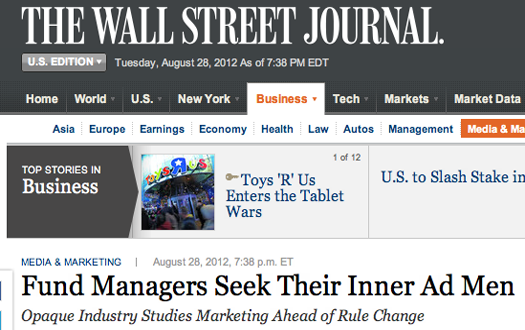
By SUZANNE VRANICA, JULIET CHUNG and JESSICA HOLZER
“Invest in hedge funds: because you are worth it.”
“Alternative investments are it.”
“It’s not your father’s hedge fund.”
Those are just a few hypothetical slogans that could appear on a billboard near you as a result of a planned relaxation of a ban on hedge-fund advertising.
While many hedge funds say they aren’t rushing out to buy up TV ads and rename sports stadiums like their more visible brethren in the banking world, they are testing the waters for what the new freedom could mean for this opaque industry.
U.S. regulators are expected Wednesday to propose loosening restrictions banning private-investment firms from advertising—a provision contained in the Jumpstart Our Business Startups, or JOBS, Act.
The new law, passed in April, directs the U.S. Securities and Exchange Commission to reverse a long-standing ban on general solicitation for certain private offerings so long as firms take reasonable steps to verify investors in these deals are “accredited investors,” institutions or people who meet certain lofty income or asset thresholds. Some hedge funds adhere to stricter criteria. Read the full article here.













